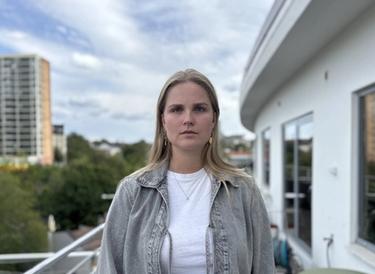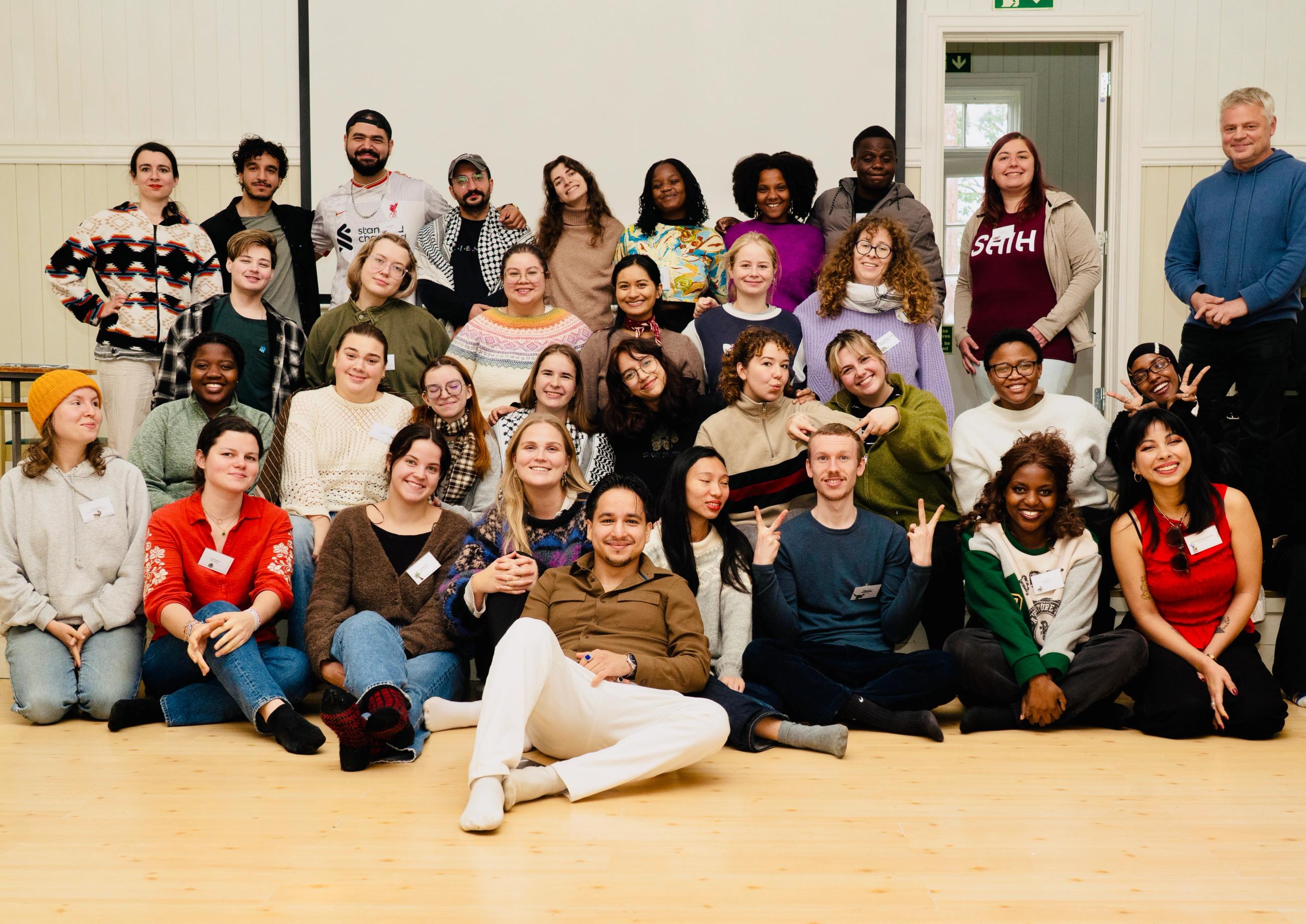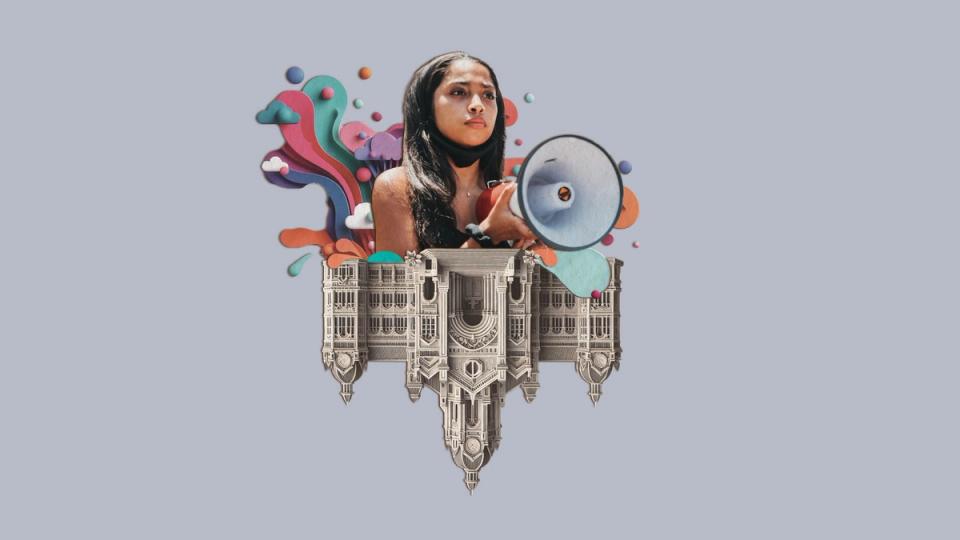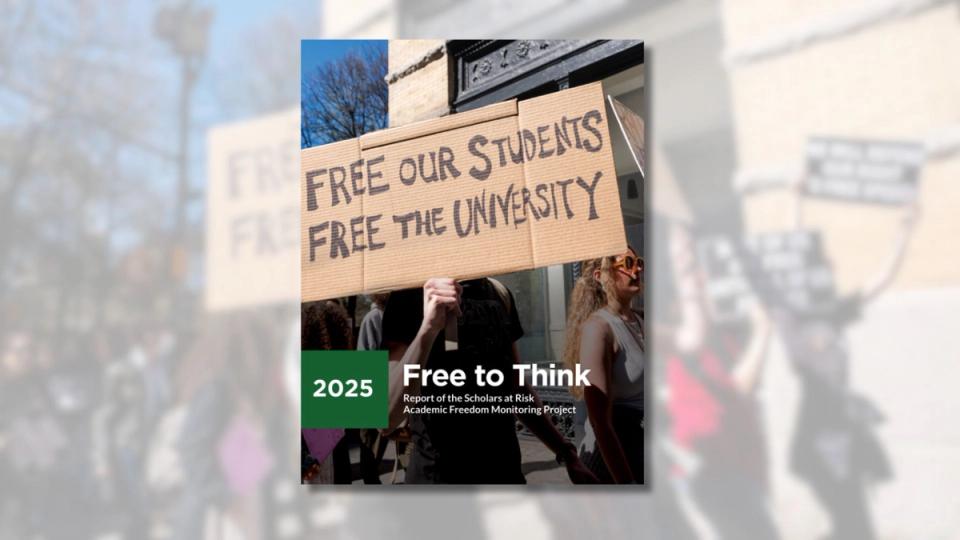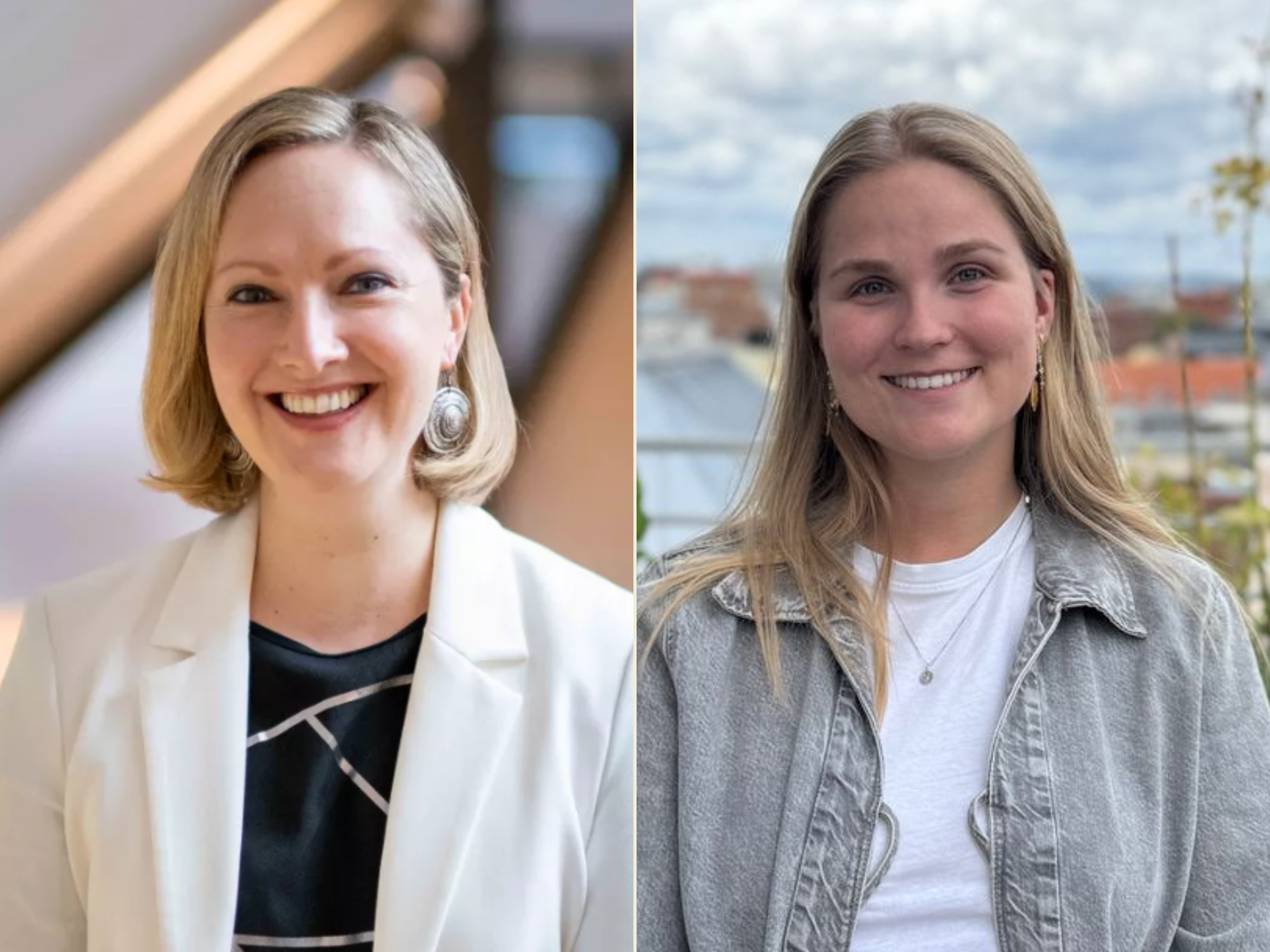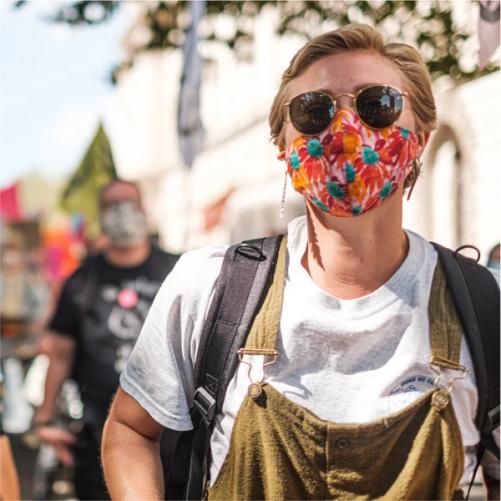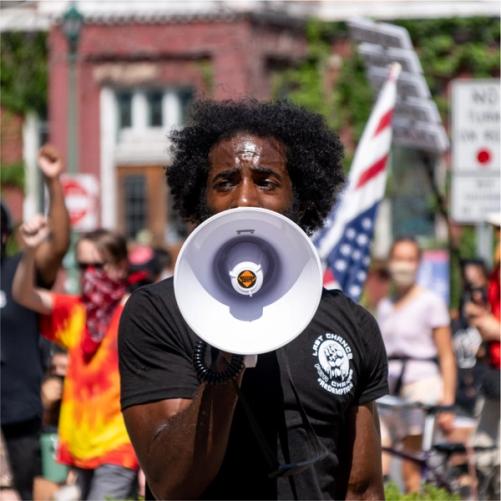Nyhet
Youth in Bolivia: Protecting their bodies – strengthening their rights
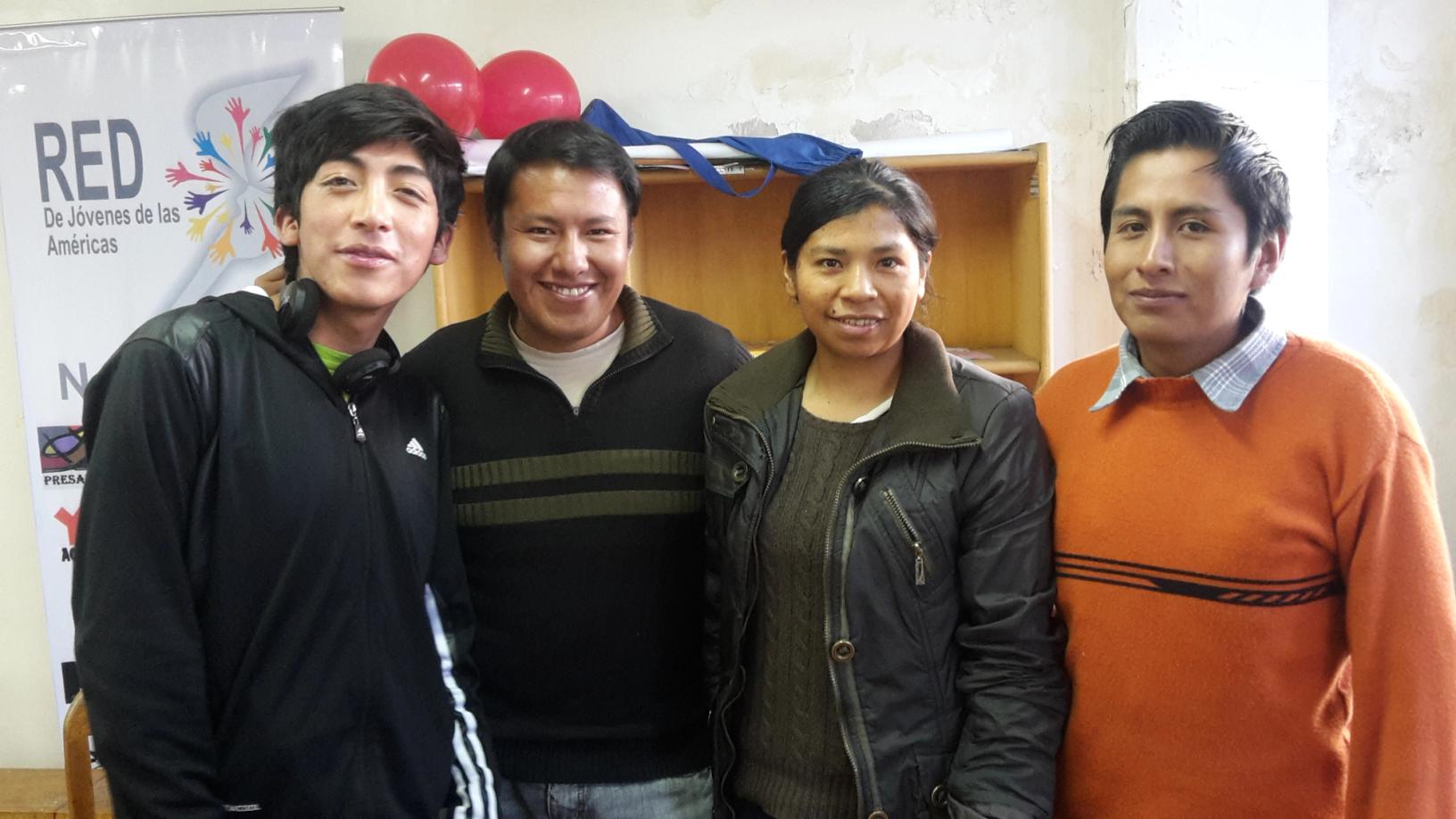
I’m at a Café in the middle of La Paz, Bolivia, with a direct view out to “La Plaza del Estudiante”. The plaza is filling up with demonstrators, as it apparently does quite often, just as it should at a student square. Even though I’m wishing all the best to the peaceful protesters, at the moment I’m more interested in what the person on the other side of the coffee-table is telling me. Juan Carlos Balderas Gamarra is the director of SAIH's partner organization CEADL, an umbrella organisation for youth-organizations in Bolivia. Their main goal is creating new leaders and political engagement amongst the newer generations.
“How does my body work?”
“We started out focusing on the political aspect. Thinking critically, reading, theory, and so on. After some years this girl, I think she was about 13 years old, came and she said: I want to learn how my body works. What could we do but agree?”
Juan Carlos stops and looks out to the student square, noticing that the protesters have started their appeals. We listen for some minutes before Juan Carlos continues the explanation of CEADL’s development, now with cheers, shouts and the occasional firecracker in the background.
“So we started up with groups focusing on sexual and reproductive rights. We continued this for some years, and then we realized – where are the real leaders coming from? The leaders that take charge, organize, that goes out there and continue the work without us. Most of them are coming from the sexual and reproductive rights groups, not the political ones. So we integrated them in our leaderships training. Now everyone works with everything!”
CEADL believes that the youth needs to define their rights based on their own realities and experiences, and use this base for developing their communities. In these discussions sexuality and gender are always brought up, and are therefore an important part of the youth groups work.
Protection of LGBT youth
An example of this is the “Ley de la Joventud” in Sucre (which you can read more about here). After Bolivia got a law protecting the rights of youth in 2013, CEADL tried to affect the laws on a local level, gathering youths from several different organizations to contribute with their own inputs. In Sucre the changes the youth proposed was adapted more or less completely into the law of the municipal. This resulted in, amongst other things, that the law specifically said LGBT youth should be protected from discrimination. In a conservative and catholic country as Bolivia, where homosexuality is still generally believed to be a disease, this was a very big step.
“Communication is vital”
Also in El Alto are the youth groups in the lead when it comes to sexual and reproductive rights. A couple of days after the meeting with Juan Carlos, I am invited to the offices of CEADL to meet someone working specifically with these issues. Paola (27), Raúl (28), Yenko (22) and Maycol (19) are a part of the organization “Siempre Latente” who contacts high schools and secondary’s in the area to offer talks about sexual education. The level of sexual education in the schools varies a lot, and sometimes the teachers does not want to talk about these themes at all.
“So what are the biggest challenges you meet here in the community working with this?”
Raúl has an answer straight away: “Communication. The lack of communication is a big challenge”.
The rest of the groups nods to affirm, and Paola explains:
“The communication usually isn’t very good inside of the family. We don’t talk about these things, sex, prevention, sexuality etc. And the generation of our parents don’t have a lot of education on these things either. Most of the people in El Alto are indigenous people, and don’t have much education at all. It’s only the last years that this has started to change. And now it’s slowly getting better when it comes to talking about sexual and reproductive health and rights as well.”
Teen pregnancies and illegal abortions
They tell me that the information on contraceptives in the area is lacking, and that a lot of girls get pregnant very early and drops out of school.
“What about abortion? Is that an option for the girls?” I ask, a little tentatively as I have heard abortion is illegal and looked upon as a sin by many in Bolivia.
Abortion is illegal except for cases of rape, incest or if the life of the woman is at stake, they tell me.
“Even though we don’t talk about abortion and it is very taboo, most people know where they can get it done if they really want to. The less money they have, the less safe it is. Here in El Alto, especially for the young girls, they do not have enough money for the places that take care of you. Even if they can scrape together enough money, it can be very dangerous.”
The problems connected to SRHR and LGBT rights are many, and it is obvious that these are topics important for the youth on a personal level. They live with these issues daily, and confronting them is a big part of contributing to change in the society. With more knowledge and freedom in their personal lives, it is easier to speak up with more strength and confidence in the political life. It is crucial for filling the student square “La Plaza del Estudiante” with even more people, opinions and voices.
